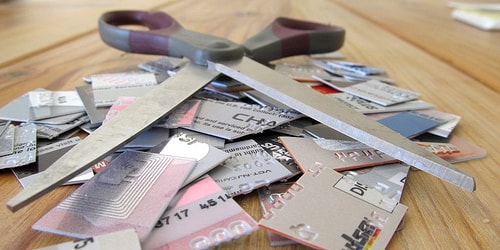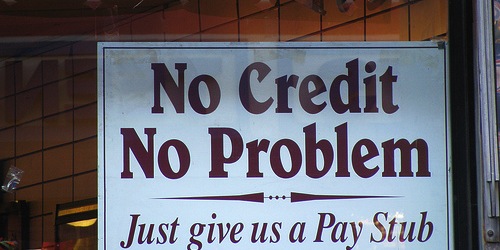Ever wonder what the rich and famous carry in their respective purses and wallets? I assume the most expensive credit cards available. Clearly they can’t lug around ordinary plastic cards or bags of cash, so how do they make all those super expensive purchases? Well, like everything else in life, there’s another level of luxury… Continue reading The Most Expensive Credit Cards
Category: Credit News
The latest credit score and credit card news.
There Used to Be a Trump Rewards Visa Card
Fun fact: There used to be a “Trump credit card” back in the 1990s. It was issued by First USA, which was formerly one of the largest credit card issuers in the United States. The company was eventually acquired by Banc One in mid-1997, and Chase took them over several years later in July 2004.… Continue reading There Used to Be a Trump Rewards Visa Card
Capital One Finally Allowing Miles Transfers to Airlines
Well, it took some time, but Capital One miles are now actually miles, assuming you take advantage of their new option to transfer them to airline partners. Beginning in December, the credit card issuer will let Capital One cardholders transfer their miles to more than a dozen third-party airlines, with more carriers to come in… Continue reading Capital One Finally Allowing Miles Transfers to Airlines
Four Credit Card Issuers Block Coinbase Purchases
I knew at some point I’d be forced to write about bitcoin on this site. I didn’t want to do it, but it was inevitable. So I’m sorry. Anyway, Coinbase, which is one of the major bitcoin players here in the United States, sent out a tweet last night noting that four major credit card… Continue reading Four Credit Card Issuers Block Coinbase Purchases
Uber Credit Card Review: 4% Cash Back on Dining, 3% on Travel, 2% on Uber
Update: It has now been confirmed that an Uber credit card is being released on November 2nd, 2017 by Barclaycard, per Uber themselves. We now have all the important details on the exciting new Uber Visa Card, including some tasty bonus categories and a sign-up bonus. Below is my review of the new Uber credit… Continue reading Uber Credit Card Review: 4% Cash Back on Dining, 3% on Travel, 2% on Uber
Affirm Offers New Way to Pay for Those Who Don’t Like Credit Cards
A company by the name of Affirm is looking to shake up the way consumers pay for high-ticket items they would normally just charge to a credit card. Instead of swiping or dipping, individuals can get real-time financing for purchases during the checkout process. How Affirm Works For example, if a certain Millennial (I didn’t… Continue reading Affirm Offers New Way to Pay for Those Who Don’t Like Credit Cards
Costco Anywhere Visa: Details of New Citi Costco Credit Cards Emerge
Costco Anywhere Visa Card by Citi It was revealed earlier this year that Costco was ditching American Express in favor of Citi after the pair was unable to renew their longstanding contract. So come next spring, you’ll be swiping with a Citi-based Visa credit card at Costco, not your current Amex. The name of the… Continue reading Costco Anywhere Visa: Details of New Citi Costco Credit Cards Emerge
View Your FICO Score for Free Simply By Having a Credit Card
The credit score world just got turned on its head. Today, FICO announced that millions of consumers would now have access to their FICO scores without paying a dime. And without jumping through hoops. The initiative is called “FICO® Score Open Access,” and the gist of it is that the FICO scores lenders buy to… Continue reading View Your FICO Score for Free Simply By Having a Credit Card
Introducing the Apple Credit Card? Finally!
First there was the Google credit card, and now there’s an Apple credit card? Not so fast folks – this is more of a “what if” scenario. And one credit card comparison company had some fun with the idea in a recent infographic. Their infographic is essentially a play on Apple’s many product launches, and… Continue reading Introducing the Apple Credit Card? Finally!
Are Credit Cards Going to Be Obsolete Soon?
With all the new technology being introduced to the world, one has to wonder if seemingly ancient plastic credit cards are on their way out, for good. After all, they haven’t changed a whole lot over the past couple decades. We’re still carrying around rectangular pieces of plastic in our wallets that contain 15 or… Continue reading Are Credit Cards Going to Be Obsolete Soon?










